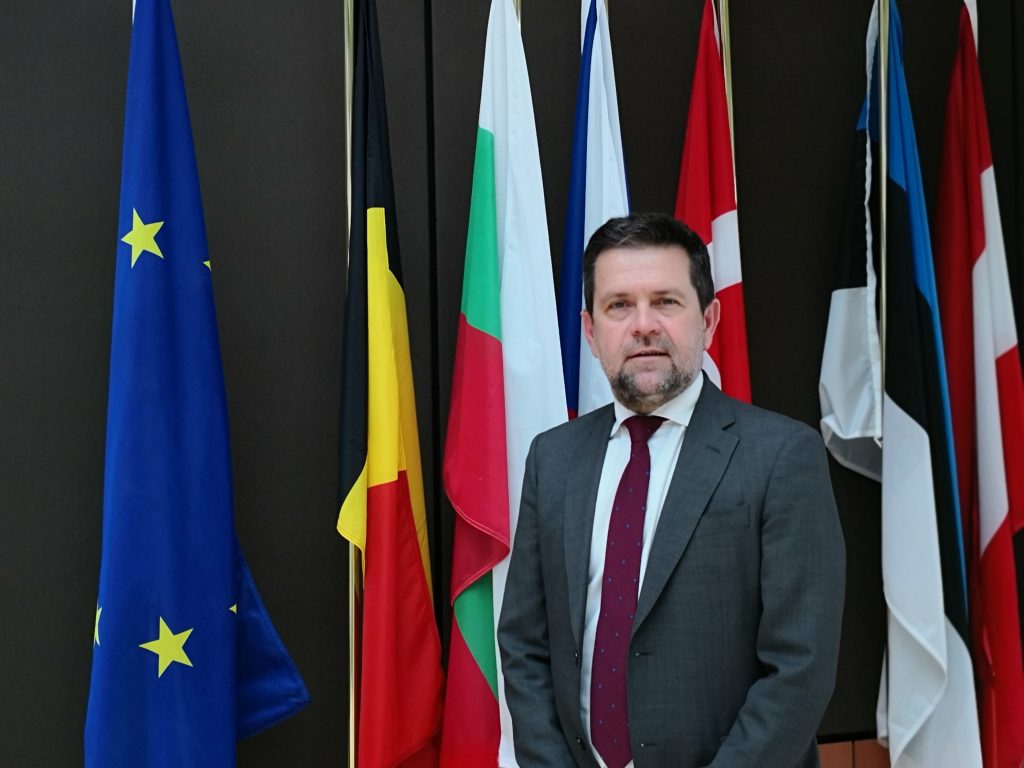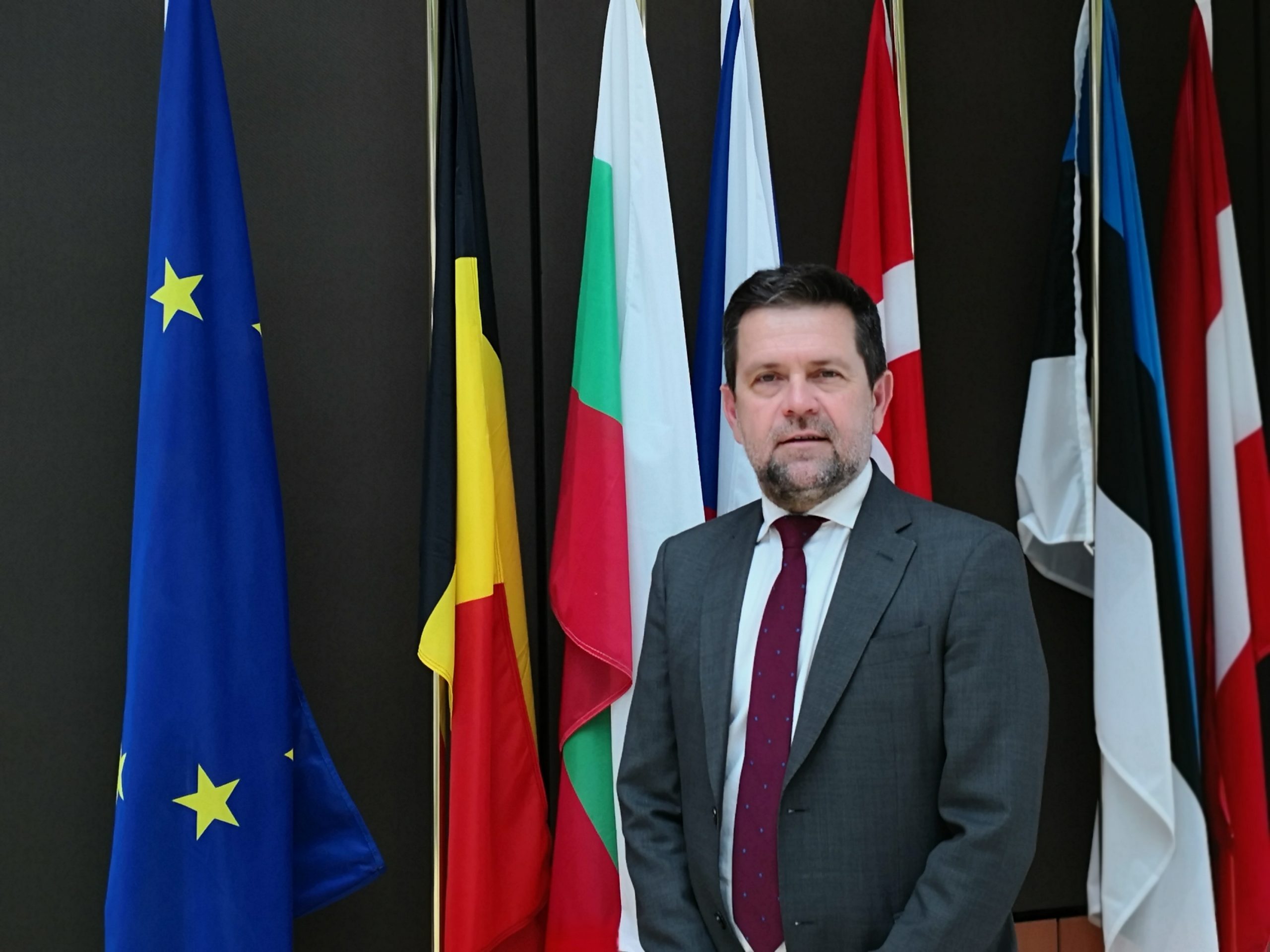Interview of the month with Juan Marín Bravo, president of FruitVegetables EUROPE (EUCOFEL)
How should the excess costs generated by Covid-19 be managed to prevent negative effects on competitiveness or purchasing power?
Since the start of the pandemic, FruitVegetables EUROPE has conveyed the industry’s concerns regarding the COVID-19 crisis and its negative impact on the European fruit and vegetable sector. Like the health sector, EU fruit and vegetable producers have been and are on the front line of the battle against COVID-19. The sector has worked intensively in the fields and in the warehouses, while ensuring that factories, logistics, distribution, marketing and outlets across the EU work well to ensure that supply is maintained to put food on our tables. These great efforts come at a cost and producers must be helped. The EU market disturbances in the fruit and vegetable sector are real. Several sectors have suffered and are suffering the consequences of COVID-19, especially in terms of the additional costs of transport, the costs of protective equipment, the fall in consumption of certain products, the difficulty of hiring workers, etc.
What is your position on the measures that the European Commission will implement?
After many demands, the European Commission announced a package of measures that sought to increase the flexibility of sectoral programmes for fruit and vegetables. However, FruitVegetablesEUROPE considers that the measures to be totally insufficient for the EU fruit and vegetable sector. For this reason, we continue to call on the European Commission to include general production expenses (included in Section 1 of Annex 2 of Delegated Regulation 2017/891) and exceptional expenses resulting from Covid-19. FruitVegetablesEUROPE believes that the response to this global health, social and economic crisis must be European. The EU must come up with truly effective measures that reassure markets, help producers and give confidence to EU consumers alike. In addition, the measures must be maintained as long as the social and economic crisis created by the COVID-19 pandemic lasts.
What do you think about those Commission’s programmes to promote more sustainable agriculture, such as Farm-to-Fork”?
It is a fact that we need to find a way to feed a much larger world population in 2050 without harming our planet, and the EU has a crucial role to play in this matter. Commissioner Kyriakides mentioned that the “Farm-to-Fork” strategy must reflect that ambition in the Green Deal.
Our opinion in this regard can be summarised in the following points:
● The incentives proposed in the Green Deal and Farm-to-Fork strategies are not sufficient and adequate for EU farmers to achieve an ecological transition.
● The reduction in the use of pesticides should be based on scientific criteria. The European Commission must present understandable alternatives to the use of current pesticides.
● Coordinated measures must be taken to contribute to a sustainable food system that has a neutral environmental impact.
● Urgent action is needed to reduce food waste and food losses at EU level.
● Conventional agriculture in the EU meets the world’s highest quality and food safety standards. Therefore, not only organic farming should be considered.
● There is a need to increase the number of actions related to providing information about and promoting mandatory EU origin labeling, in particular for fruit and vegetables in the EU.
● We need concise and realistic proposals that are backed by strong budget support.
What are the steps to follow to achieve a true Green Deal?
FruitVegetablesEurope believes that no one should be left behind; the environmental transition cannot leave the burden to European farmers alone. European farmers are struggling to keep the sector alive, which is hit hard by intense international competition. For this reason, FruitVegetablesEUROPE encourages the European Commission to increase the coherence of EU policies affecting the EU agricultural sector. The coherence of EU policies and their alignment with the new Green Deal and the Farm-to-Fork strategy must be a priority.
Regarding “Brexit”, what kind of agreements do you consider possible without tariffs?
Negotiations to achieve a trade agreement between the European Union and the United Kingdom should be a priority. FruitVegetablesEUROPE believes that the application of tariffs on EU fruit and vegetables would have a catastrophic impact on the EU export sector, as the UK is the third largest destination for EU exports, after Germany and France. In addition, EU exporters will have to compete with third countries that are exempt from this tariff rate (competitors from the Mediterranean and the southern hemisphere already have preferential agreements signed at a tariff rate of 0%) and do not comply with EU regulations for high quality, social, environmental and phytosanitary.
EU producers and exporters have spent years opening up and consolidating the UK premium market for high-quality products where taste, freshness and safety are the main requirements. Unfortunately, there is no premium alternative market for EU production and the Russian market remains closed. In this regard, FruitVegetablesEUROPE reiterates that the future trade relationship between the EU and the UK is crucial for the EU fruit and vegetable sector.
For example, the announced tariffs of 16 per cent for mandarins, 10 per cent for oranges and 6 per cent for lemons would make EU exports to the UK unviable compared to other origins which have zero per cent tariffs. The example of the EU citrus sector can be extrapolated to the entire EU fruit and vegetable sector.
It is therefore absolutely crucial for the EU fruit and vegetable sector that all fruit and vegetable exports to the UK are duty-free, and there is a need for rapid automated procedures that allow the processing of all documentation required in real time.
FruitVegetablesEUROPE calls on the EU not to sacrifice the EU agricultural sector in negotiations with the UK. It is imperative that the EU take into equal consideration all the productive sectors of the European Union: agriculture, industry and services.
What possible agreements could be established with other markets?
FruitVegetablesEUROPE believes that the EU should prioritise its engagement with the United States while enjoying the most integrated economic relationship in the world. Furthermore, China is now the EU’s second largest trading partner behind the United States and the EU is China’s largest trading partner. Therefore, improving the access of EU fruit and vegetables to the Chinese market should also be a priority for the EU.
Finally, Russia should not be forgotten. Russia’s import ban has deprived European fruit and vegetable producers of an important export market and the effects of the ban undoubtedly continue to have serious consequences for the EU fruit and vegetable sector.
What have so far been the impacts of the “CUTE” campaign?
In its first year, the CuTE promotion programme – Cultivating the Flavour of Europe – has reached 143 million potential consumers and has appeared in 451 international articles. In this second year, the CuTE programme continues with the actions that began in 2019, especially the radio campaign to promote our strawberry varieties.
Due to the COVID-19 pandemic, the programme had to be modified and adapted to the health situation. EUROTOUR has had to be postponed until the situation improves. Online and digital activities have been reinforced, such as with the children’s film Tom and the Greenhouses of France: https://youtu.be/oCfR_wmzKZk
CuTE is running a dynamic, exciting and amazing activities programme for children and adults. See: www.fruitvegetableseurope.eu




